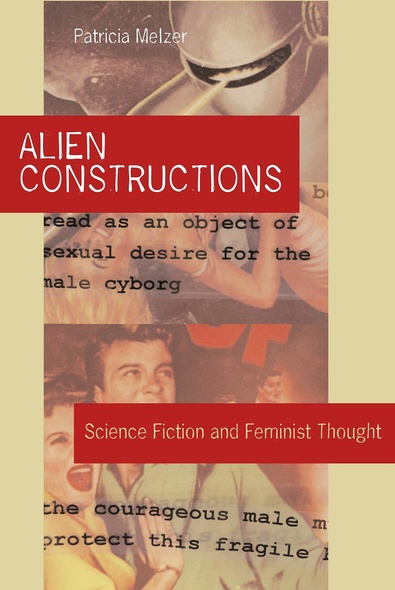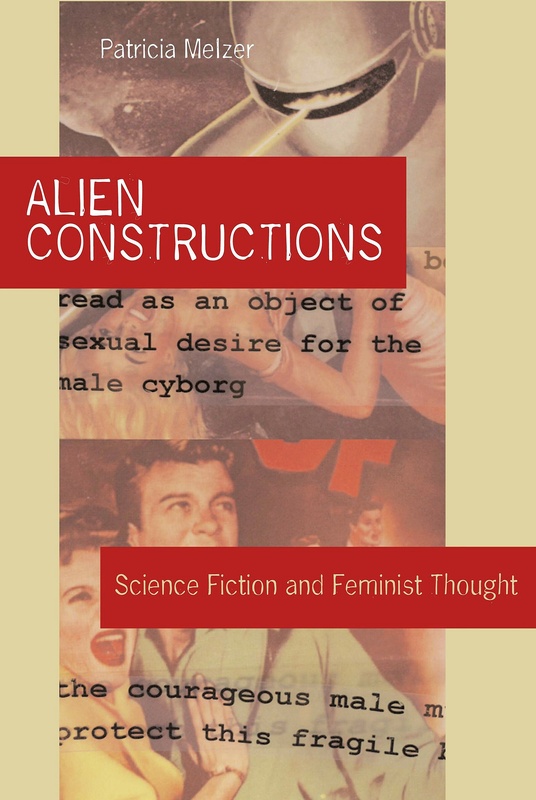Alien Constructions
Science Fiction and Feminist Thought
Though set in other worlds populated by alien beings, science fiction is a site where humans can critique and re-imagine the paradigms that shape this world, from fundamentals such as the sex and gender of the body to global power relations among sexes, races, and nations. Feminist thinkers and writers are increasingly recognizing science fiction's potential to shatter patriarchal and heterosexual norms, while the creators of science fiction are bringing new depth and complexity to the genre by engaging with feminist theories and politics. This book maps the intersection of feminism and science fiction through close readings of science fiction literature by Octavia E. Butler, Richard Calder, and Melissa Scott and the movies The Matrix and the Alien series.
Patricia Melzer analyzes how these authors and films represent debates and concepts in three areas of feminist thought: identity and difference, feminist critiques of science and technology, and the relationship among gender identity, body, and desire, including the new gender politics of queer desires, transgender, and intersexed bodies and identities. She demonstrates that key political elements shape these debates, including global capitalism and exploitative class relations within a growing international system; the impact of computer, industrial, and medical technologies on women's lives and reproductive rights; and posthuman embodiment as expressed through biotechnologies, the body/machine interface, and the commodification of desire. Melzer's investigation makes it clear that feminist writings and readings of science fiction are part of a feminist critique of existing power relations—and that the alien constructions (cyborgs, clones, androids, aliens, and hybrids) that populate postmodern science fiction are as potentially empowering as they are threatening.
Patricia Melzer is Director of the Women's Studies Program at Temple University in Philadelphia.
- Acknowledgments
- Introduction: Science Fiction's Alien Constructions
- Part I. Difference, Identity, and Colonial Experience in Feminist Science Fiction
- 1. Cultural Chameleons: Anticolonial Identities and Resistance in Octavia E. Butler's Survivor and Dawn
- 2. The Alien in Us: Metaphors of Transgression in the Work of Octavia E. Butler
- Part II: Technologies and Gender in Science Fiction Film
- 3. Technoscience's Stepdaughter: The Feminist Cyborg in Alien Resurrection
- 4. Our Bodies as Our Selves: Body, Subjectivity, and (Virtual) Reality in The Matrix
- Part III: Posthuman Embodiment: Deviant Bodies, Desire, and Feminist Politics
- 5. The Anatomy of Dystopia: Female Technobodies and the Death of Desire in Richard Calder's Dead Girls
- 6. Beyond Binary Gender: Genderqueer Identities and Intersexed Bodies in Octavia E. Butler's Wild Seed and Imago and Melissa Scott's Shadow Man
- Conclusion
- Notes
- Bibliography
- Index





